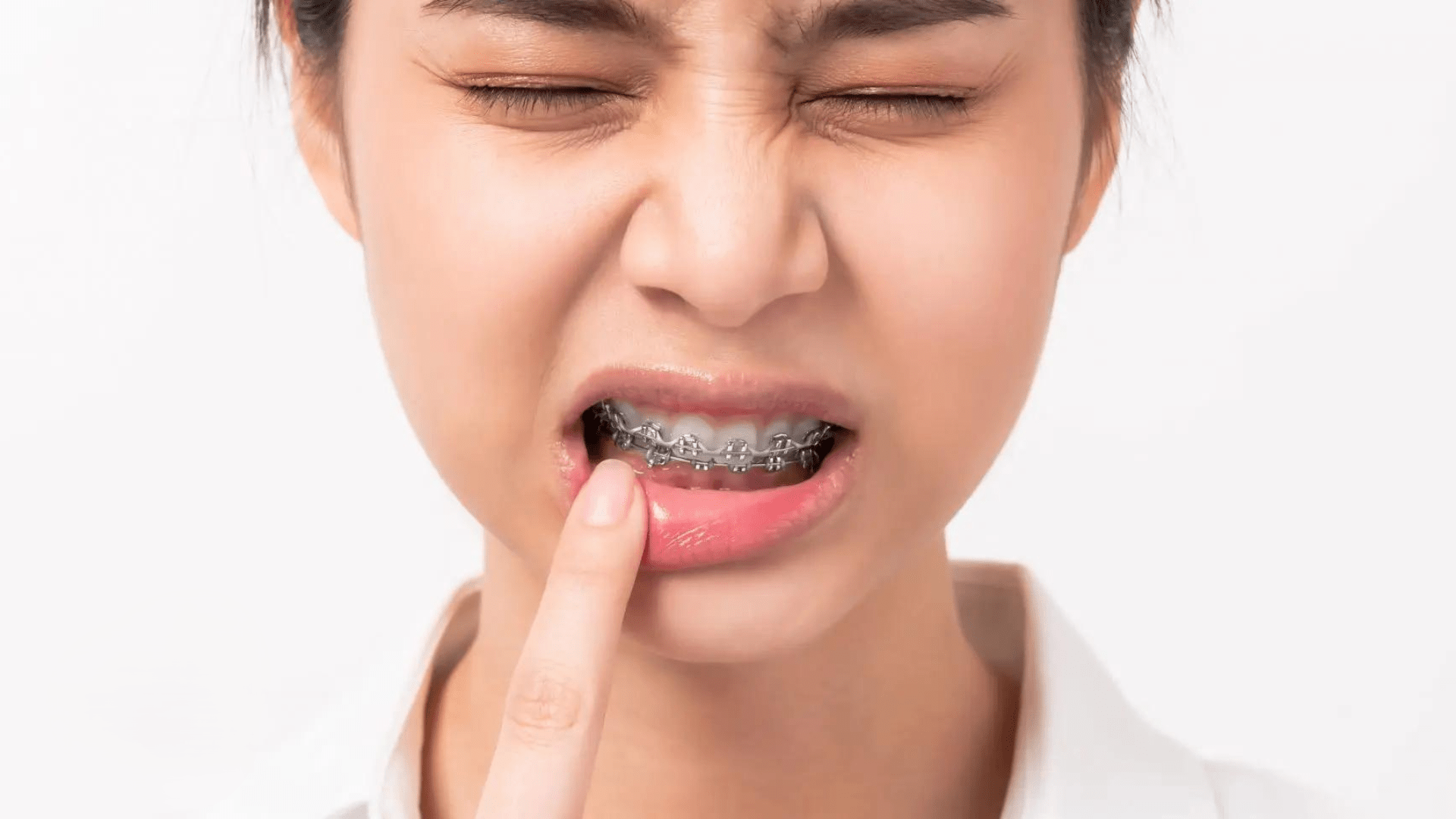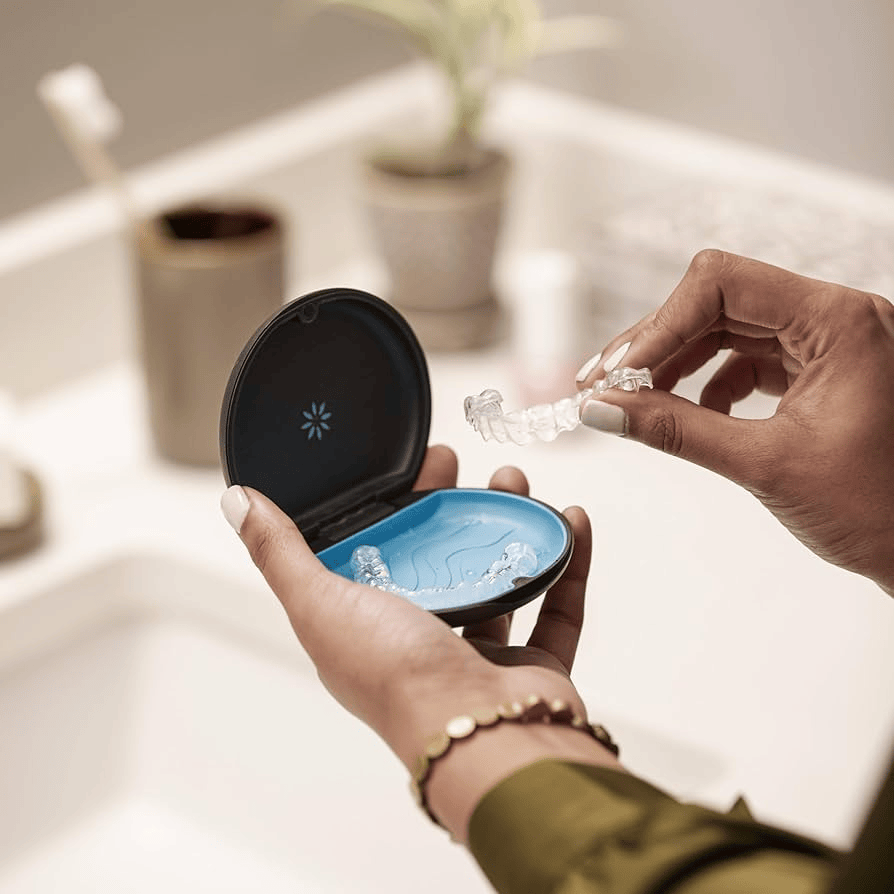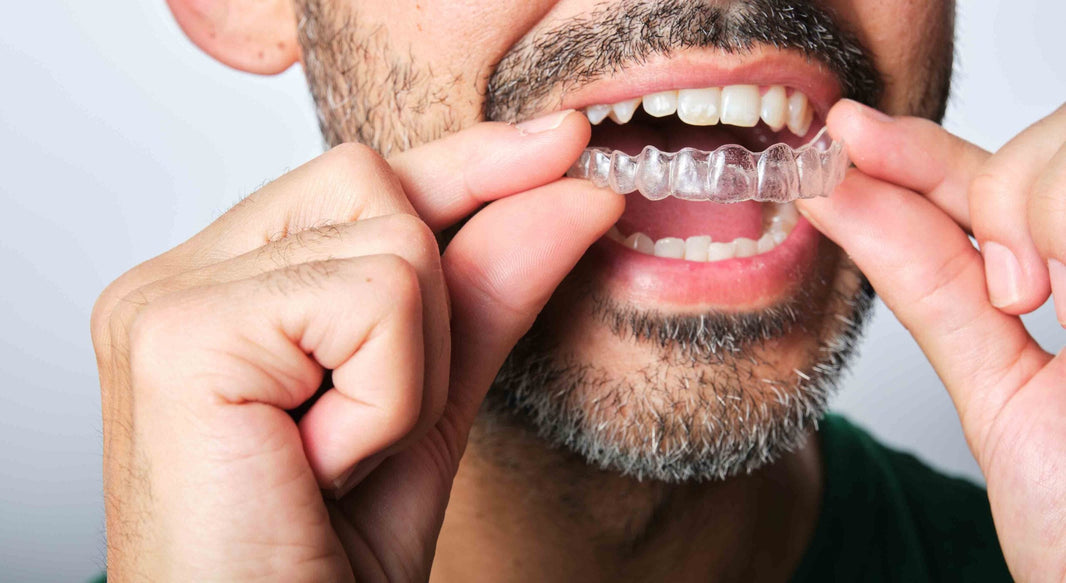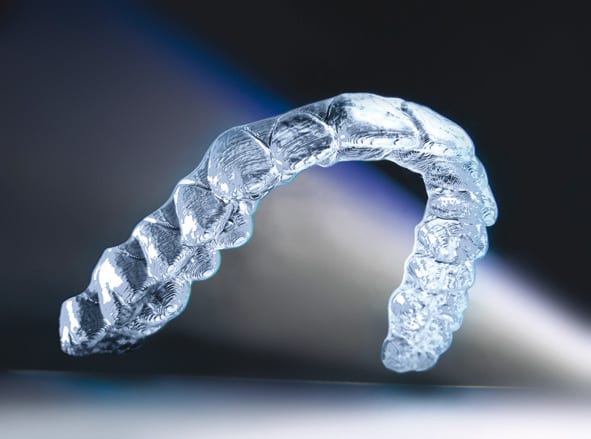Canker sores—those small, painful ulcers that show up inside the mouth—are an annoying yet common side effect for people undergoing orthodontic treatment. While these sores aren’t dangerous and usually heal on their own within 1 to 2 weeks, they can make eating, speaking, and brushing teeth uncomfortable.
Table of contents
Canker Sores, Irritated Lips & Gums from Braces
For patients with traditional metal braces or ceramic braces, the constant friction between metal hardware and the soft tissue of the mouth often sparks irritation that leads to canker sores, especially during the initial weeks of treatment or after an adjustment.
Why Braces Cause Canker Sores and Oral Irritation
There are several ways braces for teeth can contribute to oral discomfort, ranging from physical friction to hygiene-related inflammation. Understanding the causes can help orthodontic patients manage and prevent flare-ups.
Braces-related canker sores are usually caused by:
Friction: Brackets and wires regularly rub against the inner cheeks, lips, and tongue—especially before the mouth has adapted to the new hardware.
Tightening and adjustments: Wire changes or tightening sessions increase pressure and sensitivity, making soft tissue more prone to irritation.
Sharp edges: Occasionally, a wire or bracket might break or shift, poking into the mouth and creating a raw spot where a canker sore can form.
Oral hygiene difficulties: Braces make it harder to brush and floss thoroughly. Bacteria and food debris left behind can aggravate oral tissue and trigger inflammation.

Is Irritation or a Canker Sore an Orthodontic Emergency?
Irritated lips, swollen cheeks, sore gums, and canker sores are all common—especially in the first few weeks after getting braces or following an adjustment. While uncomfortable, these symptoms are usually not considered an orthodontic emergency. In most cases, they’re a temporary side effect of your mouth adapting to brackets, wires, and shifting teeth.
However, not all discomfort should be brushed off. If pain becomes severe, lesions don’t heal within two weeks, or swelling interferes with eating, speaking, or sleeping, it’s time to call your orthodontist. Persistent inflammation can signal that a wire is out of place, a bracket is rubbing improperly, or an oral hygiene issue is worsening the irritation. Early intervention prevents further discomfort and ensures your appliance is functioning properly.
While not a 911-level dental emergency, ongoing soft-tissue irritation deserves attention. Getting the issue checked out sooner rather than later can keep your treatment plan comfortable and on schedule.
Contact your orthodontist right away if:
A canker sore becomes unusually large or painful
Irritation worsens after applying orthodontic wax
Swelling spreads beyond the immediate site
A broken wire or bracket is visibly poking soft tissue
Symptoms persist beyond 14 days without improvement
How to Soothe and Treat Braces-Related Canker Sores
Even though these mouth sores usually heal on their own, you don’t have to suffer in silence. Several at-home remedies and orthodontic tools can make life with braces more comfortable.
Start with these relief options:
Orthodontic wax: Apply orthodontic wax over sharp or irritating brackets to reduce contact with your mouth’s soft tissue.
Saltwater rinses: A warm saltwater rinse can help disinfect the sore and reduce inflammation naturally.
Over-the-counter gels and ointments: Oral pain relief gels, such as those containing benzocaine, can numb the area and promote faster healing.
Consult your orthodontist: If the sore becomes unusually large, lasts longer than two weeks, or interferes with eating and drinking, contact your orthodontist. Prescription rinses or barrier gels may be necessary.
Best Practices to Prevent Future Sores
Although you can’t always avoid canker sores completely, there are steps you can take to reduce their frequency and severity during orthodontic treatment. Prevention in dental care often comes down to improving your routine and making thoughtful choices.
Try these prevention strategies:
Maintain strong oral hygiene habits: Brushing carefully around brackets and using floss picks for braces or a water flosser helps prevent food buildup that can irritate tissue.
Avoid foods that cause irritation: Steer clear of crunchy, spicy, or acidic foods that can irritate vulnerable spots in the mouth.
Use wax proactively: Don’t wait until a sore develops—apply wax to areas where brackets or wires consistently rub.
Give it time: For most patients, the mouth naturally adjusts to orthodontic braces over the first few months. As that happens, irritation tends to decrease.
Invisalign Patents: Less Risk, But Not Immune
Patients using Invisalign clear braces in trays typically experience fewer canker sores since the smooth aligner surface doesn’t rub against the cheeks and lips like metal braces do.
However, sores can still develop from tray edges, sharp attachments, or dryness caused by wearing aligners for long periods.
To minimize irritation with Invisalign:

Ensure aligners fit properly. Poorly fitting trays can rub against the gumline or tongue.
Keep aligners clean. Debris buildup can lead to irritation and bacterial growth.
Hydrate often. Dryness can increase the risk of irritation, so drink plenty of water.
Final Note: Oral Hygiene Is Critical
When it comes to making braces work effectively, hygiene is non-negotiable. Canker sores and irritation from braces can complicate cleaning, but that’s when brushing and rinsing become even more important. Without proper care, food and plaque buildup can slow tooth movement or lead to decay around brackets and wires. Staying diligent helps keep treatment on track—and your mouth healthy.
Rinse and brush after meals
Keep brackets and wires clean
Attend all scheduled appointments
Are canker sores a sign something is wrong with my braces?
Not necessarily. Mild irritation is normal, especially at the beginning of treatment. However, sharp wires or broken brackets should be addressed immediately.
Can braces cause chronic mouth ulcers?
While occasional canker sores are common, frequent or persistent ulcers could indicate an allergy or other issue—speak to your orthodontist if symptoms don’t improve.
What’s the best way to prevent canker sores with braces?
Proactive wax use, good oral hygiene, and avoiding irritating foods are key to prevention.
Do canker sores spread from person to person?
No. Canker sores are not contagious and are usually related to local irritation or stress.
Time to Book a Dental Emergency?
A canker sore and irritation of the gums shouldn't cause panic—but it does need follow-up. If you’re experiencing ongoing discomfort or can’t resolve the issue at home, you’ll likely need to schedule an emergency orthodontic visit. This type of appointment is separate from your regular adjustment and is meant to address urgent concerns like exposed wires, loose brackets, or hardware that’s causing pain or interfering with your daily activities.
Waiting until your next scheduled visit may prolong discomfort or lead to complications in your treatment progress. Your orthodontist can quickly assess the situation, fix your broken bracket, and get you back on track with minimal disruption.






